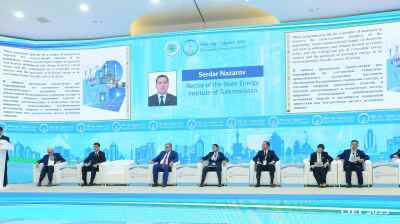The Gas Exporting Countries Forum (GECF) has released a statement rejecting the finding of a report released by the International Energy Agency (IEA) last week, which concluded that there should be no further investment in oil and gas production as the world strives towards net-zero emissions.
In its Net Zero by 2050: a Roadmap for the Global Energy Sector, the IEA predicted that in a net-zero scenario, natural gas demand would start falling in the mid-2020s, from a peak of 4.3 trillion cubic metres to 3.7 tcm in 2030 and 1.75 tcm in 2050, or 55% less than the level in 2020. As such, it concluded that “no new natural gas fields are needed beyond those already under development. Also not needed are many of the LNG liquefaction facilities currently under construction or at the planning stage.”
The GECF, comprised of the world’s biggest gas-producing countries, instead projects that gas will increase its share in the global energy mix to 28% from 23% today, given its “essential” role in helping countries decarbonise. The group estimates that primary energy demand will rise by 24% over the next three decades, driven by economic and population growth.
“The only approach to achieve energy market stability, responsible and inclusive economic growth, as well as sustainable development goals, is to consider natural gas as a destination fuel that will always be an essential element in achieving a lower-carbon energy system,” it said. “The GECF believes in the right of countries, particularly the developing economies, to have access to an abundant, affordable and clean source of energy. We don’t condone restrictions of policies on upstream development and directing investment resources instead towards expensive decarbonisation options and technologies, some of which are yet to be proven.”
The GECF also drew attention to the fact that the report’s net-zero scenario assumes a rapid deployment of net-zero technologies that are not currently available on the market.
“This technology challenge is further exacerbated when considering the developing countries that have no access to technologies and financial resources,” it said.
Ending upstream investment in gas can jeopardise energy security and prevent some countries from accessing competitive and clean energy sources, it said. Some $571bn of investment was spent on upstream operations between 2010 and 2019, up 79% versus the level in the 2000s, the GECF said. A further $472mn went on gas transportation and trade infrastructure, up 67% on the previous 10-year period.
“Regardless of any financing structural changes due to market ambiguities, the level of investment is expected to grow in the long term,” the GECF said. “It is estimated that total gas investment, including upstream and midstream activities between 2020 and 2050, will reach about $10 trillion, representing a compound annual growth of 1.26% from a total of $258bn in 2020 to $375bn in 2050.”
The GECF’s members include Algeria, Bolivia, Egypt, Equatorial Guinea, Iran, Libya, Nigeria, Qatar, Russia, Trinidad and Tobago and Venezuela. It also counts Angola, Azerbaijan, Iraq, Kazakhstan, Malaysia, Norway, Peru and the UAE as observers.
News

Putin's meeting with Trump in Budapest is a slap in the face for the EU
As preparations get underway for a highly anticipated summit between Russian President Vladimir Putin and former US President Donald Trump in Budapest, attention is turning to an unusual but politically sensitive detail: how will Putin get there?

Zelenskiy leaves Washington empty handed, Trump and Putin head to Budapest to talk business
Ukrainian President Volodymyr Zelenskiy went into a White House meeting with US President Donald Trump on October 17 hoping for a big arms deal. He came out of the meeting empty handed.

Taiwan’s KMT elects new leader
Cheng Li-wun, the only female contender among six candidates, defeated former Taipei mayor Hau Lung‑bin by a wide margin, winning over 50% of the ballot in the leadership race for Taiwan’s opposition Kuomintang on October 18.

Gold price in Sri Lanka plunges
The sudden drop of around LKR20,000 in both 22- and 24-carat sovereigns adds to a volatile recent run for precious-metals pricing in the island nation: only days earlier, gold prices were noted to be climbing.




